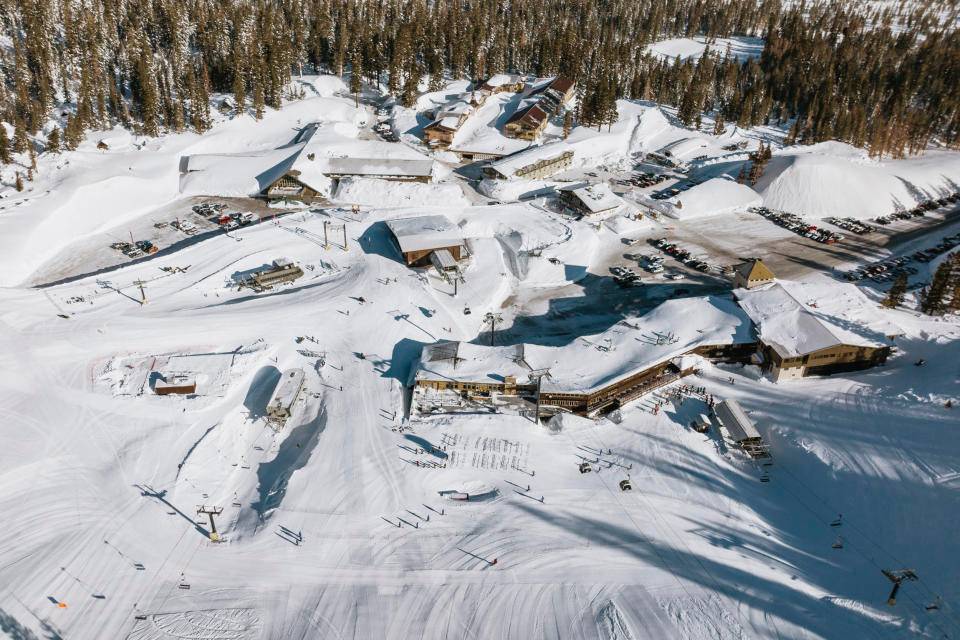
The abundance of mountain snow, on which California has traditionally relied as a crucial natural repository of fresh water during dry times, comes as a welcome reprieve following three years of record drought, which gripped the state just a few months ago.
According to state Department of Water Resources (DWR) authorities, this year's large Sierra snowpack poses a severe risk of repeated flooding to sections of California, particularly the lower San Joaquin Valley, during the spring thaw.
Some places, particularly California's central coast and agricultural heartland, are still rebuilding from floods, mudslides, and coastal devastation caused by a series of Pacific storms that dumped torrential rains on the state for three months. The same storms poured crippling amounts of snow in the Sierras and upper altitudes of California's coastal mountains, burying some ski slopes like Mammoth Springs practically to the roofs of winter cottages.
"This year's severe storms and flooding are just the latest evidence that California's climate is becoming more extreme," said DWR director Karla Nemeth on Monday. Nemeth talked to reporters following DWR officials' fourth snow survey of the season at Phillips Station, west of Lake Tahoe, where they measured a snow depth of 126.5 inches (321 cm), more than double the 30-year April average for the same area.
It was the third-highest level recorded at Phillips since surveys began in 1941, where DWR personnel stepped on a little patch of snow last April to measure barely 2.5 inches of snow. The record high was 150.7 inches in 1983. Electronic readings from 130 snow sensors around California, on the other hand, revealed the statewide snowpack's water equivalent at 61.1 inches, or 237% of average, tying the record statewide average level established in April 1952.
According to officials, the average for this year may wind up reaching that level if readings from new locations are collected in the coming days. According to the DWR, the statewide snowfall has only topped 200% of average in two prior years since records began in 1910, in 1952 and 1969. "This year's result will go down in California history as one of the largest snowpack years on record," said Sean de Guzman, manager of the DWR snow survey8 and water supply forecasting unit.
Guzman claims that California's reservoirs, which were dangerously depleted just months ago, have been replenished to more than 100% of average statewide levels. In light of the progress, Governor Gavin Newsom reversed certain mandated water conservation measures earlier this month.
Many rural regions continue to confront water supply issues, particularly those that rely on depleted groundwater basins caused by drought. Long-term drought conditions in the Colorado River watershed will continue to affect millions of Southern California people, according to the DWR.
















